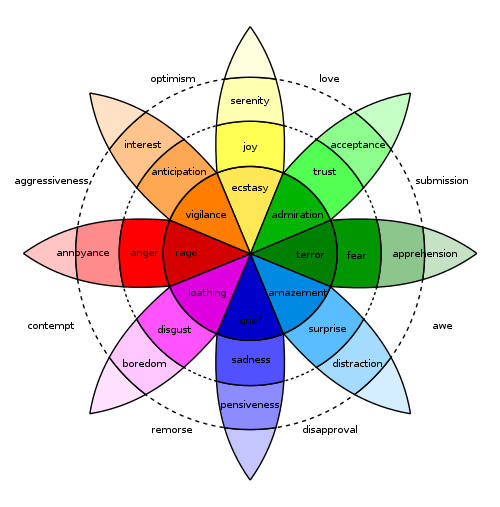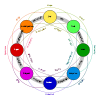Self-pity
Self-pity is an emotion "directed towards others with the goal of attracting attention, empathy, or help" and one in which the subject feels sorry for (feels pity for) themselves.[1]
Description
Although the primary focus of self-pity is on the self and one's own emotions, it has a strong interpersonal component as well. In addition to loneliness, subjects may also feel "envy, blame, anger, and hostility directed towards others".[1]
However, it is also common for some people suffering from self-pity to deflect criticism of themselves; they are usually incapable of self-reflection and blame their bad situation on external factors, such as bad luck or other people's supposed resentment.
Effects
The research based on observation on self-pity is very slim, but the research that is available shows that self-pity can be an effect from a stressor of a dramatic event. It can also be shown that aspects of one's personality can have an effect of one's self-pity. This can also be combined with antagonistic views against others as their pity to themselves becomes jealousy to the people around. Even if this can be diagnosed based on an event, it is not restricted towards that alone as anybody can fall victim to feeling sorry for one's self.
While looking into the science of psychology, the personalities that mostly respond to experiencing self-pity are moody and most likely experience feelings of anxiety, anger, loneliness, etc. In other words, people that are seen as mentally unstable are more likely to have self-pity for the most of their lifespan. There is also evidence that the effect of self-pity can depend on gender, with women being more vulnerable and more likely to go through with that cause.
The focus of where self-pity could rise could come from their past failings or losses and as a result could break down the mind of a person. These people in question could repeat the cycle and continue to beat themselves down to further their pain.
Treatment
When someone goes through the effects of self-pity, it has been seen that these effects can be subsided if one were to think of happy thoughts during the process, it could be beneficial to them and reduce further harm. With the research that is given, it is possible that it can be used to prescribe and tell the difference between a person with anxiety and a person with depression. With how one would deal with self-pity, one could treat their ailment by finding some sort of relief and grow away from further pain.
See also
- Pity
- Victim playing
- Victim mentality
- Pity (film) - movie about the emotion
References
| Wikisource has original text related to this article: |
| Wikiquote has quotations related to: Self-pity |
- Stober, J (2003). "Self-Pity: Exploring the Links to Personality, Control Beliefs, and Anger" (PDF). Journal of Personality. 71 (2): 183–220. doi:10.1111/1467-6494.7102004.
- Petric, Domina (January 2019). "Self-Pity and The Knot Theory of Mind". ResearchGate.

